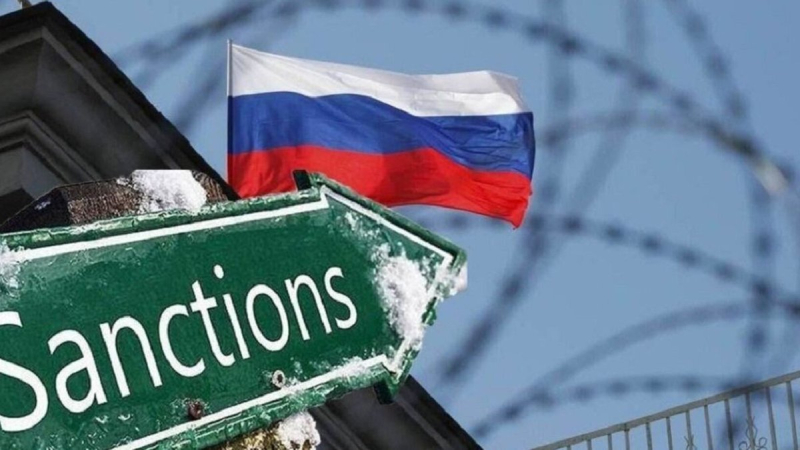
A group of Ukrainian and international experts recently created on the initiative of the President of Ukraine Volodymyr Zelensky , analyzing the real impact of sanctions restrictions applied against Russia, is presented by the Action Plan to strengthen sanctions against the Russian Federation.
This plan was presented by the head of the President's Office Andrey Yermak and former US Ambassador to Russia Michael McFaul.
Who is in this group, what are the first results of the group's work, what conclusions did it come to and why, in my opinion, the proposed option is the only possible one.
Why the group is needed
Andrey Yermak described it as follows: “The purpose of sanctions is to force Russia to end this terrible war, stop killing us, stop armed aggression.”< /p>
It would seem that a lot of sanctions have already been introduced, which means that the pressure on Russia is increasing, its business has already become toxic, the country is in a pre-default state.
But, is it all bad? Not really. Bloomberg, for example, predicted that despite the unleashed war with Ukraine and sanctions, Russia could earn $321 billion from oil and gas exports in 2022, which is about 35% more than in 2021. The publication cites data from a report by economists from the Institute of International Finance (IIF), led by Robin Brooks, and notes that Russia can also get a record current account surplus of $240 billion.
Moreover, even those sanctions that have been introduced are being adopted extremely unevenly. Suppose in Canada, 24 Russian banks fell under sanctions, 16 banks in the USA, 9 banks in the European Union, and only 5 banks in Japan. Whereas, in order to achieve a sustainable effect in all these countries, sanctions must be introduced against at least 30 Russian banks.
In addition, businesses are used to adapting very quickly to changing conditions for the worse. The Russians, in principle, have always been strong in inventing all sorts of workarounds, and now they have turned in this direction to the fullest. Several loopholes have already been found and closed to avoid sanctions that helped Russia organize the Swiss, Georgian and Turkmen authorities and businesses.
Who is in the group
Who is actually included in the Yermak-McFaul group and how expert is it in principle? As a journalist who has been writing about business since 1997, I am ready to admit that I have never seen such a significant community of famous international economists, politicians and sanctions specialists.
First of all, economists from Ivy League universities were included in the group. For example, it features Charles Kalomiris and Tanya Babina from Columbia Business School. As well as Lukasz Rachel of Princeton University.
Francis Fukuyama, Larry Jay Diamond and Bronte Kass of Stanford University are participating in the preparation of sanctions. And also Yuri Gorodnichenko from the University of California (Berkeley).
The group includes Benjamin Moll of the London School of Economics. And also Maria Shagina from the Finnish Institute of International Affairs.
Energy is handled by leading experts in the field, Edward Chow, Richard Newue and Richard Morningstar. The latest former Special Envoy of the US Secretary of State for Eurasian Energy.
International banks are represented by Credit Suisse Managing Director Steven Hellman, and Morgan Stanley Chief European Economist Jacob Neal.
The group is attended by members of the Atlantic Council Andreas Aslund, Edvard Fishman and Daniel Fried.
Quite a strong team was proposed by the Kyiv School of Economics. Despite the ambiguous attitude of many towards Timofey Milovanov, but his group, which includes Timofey Brik, Natalya Shapoval and Ilona Sologub, really does a lot to calculate the effectiveness of the sanctions.
The Ukrainian part is also represented by the head of the NAPC Alexander Novikov, acting. head of the State Tax Service Denis Gutenko, ex-head of Oschadbank Andrey Pyshny.
If you add here diplomats and politicians like former US ambassadors to Ukraine William Taylor and Stephen Pfeiffer, former US Secretary of Defense (2020-2021) Christopher Miller, former US Assistant Secretary of State for Democracy, Human Rights and Labor David Kramer, it will come out quite impressive and no doubt a representative composition of the participants.
What conclusions did the group come to and why
And now the most important thing. Despite such a wide composition, all the experts of the group agreed on one thing – the sanctions that currently exist are absolutely not enough. In their current form, they will definitely never leave Russia's war against Ukraine.
This means that sanctions need to be significantly strengthened. How exactly?
Of course, there are many intermediate, but important decisions.
For example, a ban on the import of catalysts for Russian refineries could significantly reduce the processing of raw materials in Russia. And the personal sanctions imposed against all members of the United Russia party and against all employees of the Russian Armed Forces will make it impossible for people who have stained themselves in these categories to travel to civilized and developed countries.
But, all these measures, although important, but not decisive.
According to the participants of the working group, first of all, Ukraine needs to seek three solutions.
First. Russia should be recognized as a sponsor of terrorism. Let me remind you that now only four states of the world belong to such countries – Cuba, Iran, Syria and North Korea.
Second. Russia should be in the worst category of the FATF blacklist. Currently, only Iran is in this category.
Third. All countries of the European Union should impose a complete embargo on the supply of oil and gas from Russia.
These three measures indeed, it will be in many ways enough to show Moscow what real sanctions are. And most likely, with a high degree of probability, after a certain period of time, force her to abandon the war and aggression against Ukraine.

